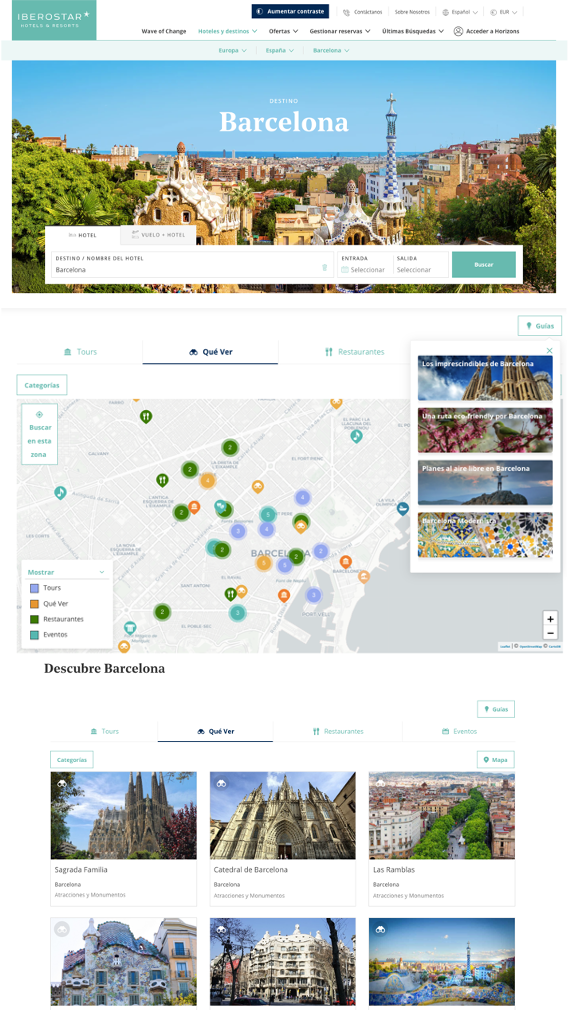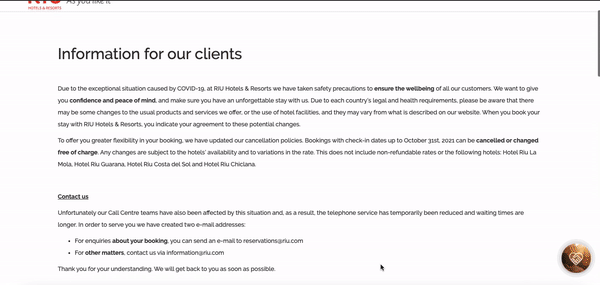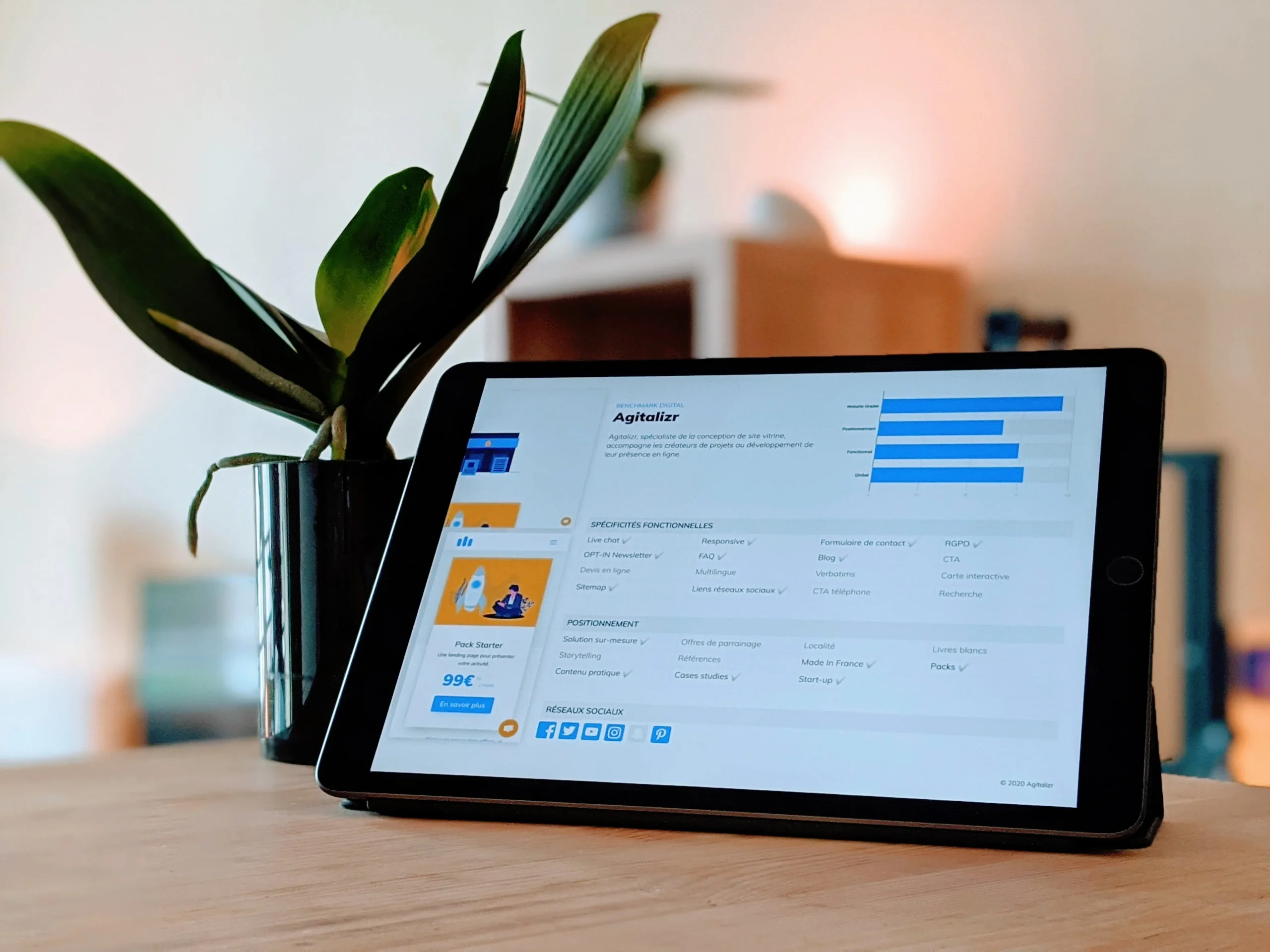As a hotel marketer, you know there’s a lot to consider if you want to increase your hotel revenue. It all starts with thinking through your various marketing tactics and optimizing your strategy.
Let’s take a look at them:
 What is Hotel Marketing?
What is Hotel Marketing?
As part of a Travel Marketing strategy, the goal of hotel marketing is to attract guests and drive revenue. It takes a solid visual brand and marketing message to stand out from the competition and up-to-date technology to build awareness and drive business.
Your website, social media, chatbots, all the online marketing tools you use to reach your guests need to feel seamless and consistent so you can boost your direct bookings.
7 Hotel Marketing Tactics
When you think through your overall marketing strategy, you already know your guests start online. They browse destinations, last-minute travel options and find inspiration from social media. Much of this browsing happens via smartphone, with 70% of travelers doing all their travel research via their phones.
1. A Seamless Digital Omnichannel Hotel Experience
A well-designed, mobile-friendly website is ground zero for any hotel. The website needs to display all the hotel’s contact details and offer an end-to-end connected experience for guests. Easy-to-use, beautiful imagery, online reservations, and seamless payments will make it easy for your guests to choose your hotel for their stay.
You can make the experience flow easier for your guests by including:
- Mobile friendly: If 7 out of 10 travelers use their smartphones to research travel destinations, you know it’s essential to have a mobile-first web presence.
- Reservations straight from your website with good booking engine technology.
- Various customer service channels, such as web forms, Whatsapp, social media, email, etc. to connect and communicate with your guests pre-booking, during their stay, and post-booking.
- Chatbot: Chatbots are ideal for answering specific simple questions.
- Adaptability and customization:
- Target: business, families, seniors – If your hotel wants to attract more honeymooners, then you want to reflect that in your imagery, offers, and services. This is also true if your target market is families, solo travelers, or seniors. Your hotel website needs to adapt to their interests with relevant offers and services.
- Location: Having local payment methods that reflect your region. For example, there are different payment methods in Germany than in Spain, so your website and eCommerce need to adapt. A multilingual website can help.
- Social proof: Research shows anywhere from 86% to 92% of people trust online reviews. When it comes to booking a hotel, they want to know how other guests enjoyed their stay. If you ask for reviews, you’ll be more likely to receive them.
- Apps: Many big hotel chains have their own apps these days. Not only do these apps keep track of rewards points, but they also offer an easy-to-use environment for guests to handle the details of their stay. From making and changing reservations to requesting a toothbrush or other amenities to check-in and out via the app, 90% of guests prefer managing their stay via digital means, and COVID has only accelerated this trend.
2. Hotel Loyalty Rewards
Hotel marketers want to encourage direct bookings, and one way to do that is by offering loyalty rewards. Subscribers can have access to special offers by booking directly on the website so you don’t have to pay commission to an aggregator. Rewards programs can make your guests feel special by remembering their preferences. As you get to know them better, you can offer them more personalized services and amenities.
Loyalty programs are cost-effective and boost revenue because they drive direct bookings and repeat guests. For instance, NH rewards offer up to 30% discount campaigns to their subscribers in certain seasons. Other innovative loyalty programs, like Marriott Rewards (named the best in 2017), allow subscribed guests to earn loyalty points if they post on social media something about the hotel and tag them. This is undoubtedly a great strategy to reward loyalty by building brand awareness with low investment.
3. Email Marketing for Hotels
The key to email marketing that pays dividends is relevancy. A confirmation email that confirms their stay and shares directions is helpful. Letting them know about a one-day festival of their favorite music during their stay will probably have a higher impact.
Email is a helpful way to let your guests know about special offers and relevant interests, and as more personalized it can be the better. With the data from their reservation, you can learn a lot about their type of trip. Also, if you ask for their preferences when they sign up or in other forms, you can tailor later communications. How many days they will stay, if it’s the first time in the city, what’s the purpose of their visit (leisure, business, romantic getaway, family occasion, etc.), what’s their breakfast preference, do they need transportation, wish to visit the spa, etc. If you can store all this precious information from your customers in a CRM system for hotels or an independent database, you will be able to use it for marketing and email automation.
With marketing automation, hotel marketers can set up guest welcome emails, use specific data points to offer applicable discounts, and personalize the guest experience, saving a lot of time and resources. Imagine you know a repeat guest booked a spa massage on their last visit. With the right data and email automation, you can send them a tailored message reminding them of your spa treatments and a special incentive. The more you know about your email subscribers, the more you can tailor your messages which improves your open rate, builds trust, and boosts revenue.
4. Market your Hotel Locations
Hotels have the opportunity to market the location in different ways for different types of guests. Iberostar Hotels, for instance, shares complete AI-empowered destination guides for their different property locations with relevant content to help them plan their stay based on their interests.
Every hotel can integrate a digital concierge tool with their website and encourage guests to build an itinerary around their interests and always stay up-to-date. From festivals to area museums and other notable destinations, hotels that market the area can appeal to travelers looking for a getaway.

5. Hotel’s Traffic Acquisition Channels
Today’s guest journey from awareness to booking is often multidimensional. Friends’ social media posts may inspire them. Other people start searching on their favorite OTA or Google. There’s no one path from brand awareness to booking. This lack of a formal guest journey is why successful hotel marketing requires consistency across channels, so guests feel confident booking their stay.
- OTA’s: Online travel agencies like Expedia.com and Booking.com connect potential guests with hotels. Building trust and getting found on an OTA requires excellent pictures, excellent hotel descriptions, and knowing which OTA’s are more likely to bring you the guests you want. OTA’s are good for brand awareness. However, if the investment makes sense, you can use technology to drive recurring bookings through your own channels.
- PPC: A smart pay-per-click strategy can drive direct bookings (and hopefully increase your hotel revenue.) A hotel can bid directly on its name. OTAs do this all the time. To succeed at the PPC game, you need to target specific guest segments with enticing images and ad copy. For example, you wouldn’t target families and single travelers the same way.
- Retargeting: There are different ways to retarget guests, via search, site, social media, and email. Which you use depends on if you have a pre-existing relationship with the guest or not. For example, retargeting works well for reaching a visitor with different creativity on another website if they haven’t booked. Or, if a guest shared their email address with you and opened an email your hotel sent, you can retarget them via Facebook and other social media. If their search is more general, such as “hotels in Rome,” then you can retarget them with display ads that help them imagine their very own Roman Holiday with your hotel as their home base.
- Social: Consistency in your social channels builds trust. Using consistent imagery, tone of voice, and type of content helps your guests recognize your brand anywhere. Your hotel can also help attract new guests by encouraging your current guests to post on social media about their experiences (user-generated content). Social media ads on Instagram or influencer campaigns can also bring you relevant traffic.
- SEO: Content is king. Improving your hotel’s organic visibility in search engines like Google can also help you attract qualified traffic to your website. Although it might take a few months, creating relevant content that engages with your audience can be a great strategy. Among other techniques, you will need to audit your site in terms of SEO, find out which keywords you should rank for, create content based on your keyword plan, increase your backlinks, and be consistent in posting fresh and relevant content on your website to start seeing the first results. The good thing about it is that with low initial investment, it can be a very smart strategy in the long run.
6. Hotel Technology: VR, reality tours, 360 of the rooms, and others.
According to Statista, the VR/AR market grew to 18.8 billion in the U.S. in 2020, and the trend is only going up. From interactive hotel rooms to allow guests to “see” celebrities, there’s an ample opportunity with these technologies to help your prospect “try-out” or adapt your environment to their personal tastes.
Other popular hotel technologies of ‘smart hotels’ include offering experiences. From transportation to local activities, hotels that provide the opportunity for guests to see what’s available and build their own experience is an opportunity to make their guests happy and boost revenue for the hotel.
Of course, contactless technologies will only continue to rise. Even pre-covid, 90% of guests preferred handling their check-in and out, payment, and concierge services via apps. If you are an independent hotel or a smaller hotel chain with fewer resources, having a SEO content strategy, email, and marketing automation tools or adopting the latest hotel technologies might sound a bit too unreachable at this moment, but there are many providers out there capable of providing all these at a lower scale. For instance, you could have these travel guide widgets with relevant content for your guests at an affordable cost. Starting from the ground, building a solid marketing strategy adapted to your size, and making well thought small steps at a time will eventually make you grow.

7. COVID impact on Hotel Marketing
As hotels reopen and people begin traveling again, it’s more important than ever to stay in communication. Hotels can maintain flexible cancellation policies to encourage bookings, highlight their contactless measures, communicate their COVID protocol, and keep people informed about travel restrictions, like for instance RIU Hotels using an interactive restrictions map.

In this guide to hotel marketing, you’ll see there’s a lot to consider before your guest ever steps foot on your property. From a mobile-first website and contactless check-in and out processes to loyalty programs, there are tools to communicate with your guests and keep them up-to-date with local information so they feel appreciated.
Which ones do you feel most confident in?





